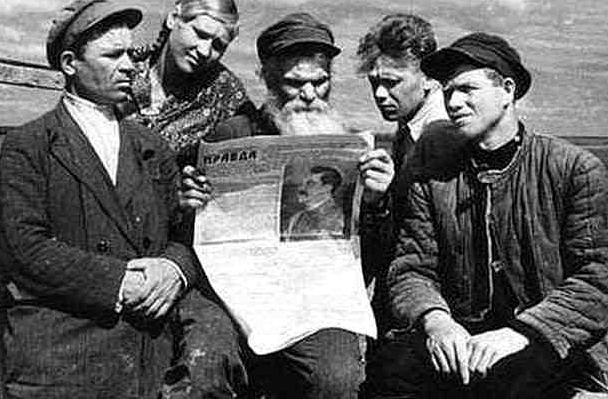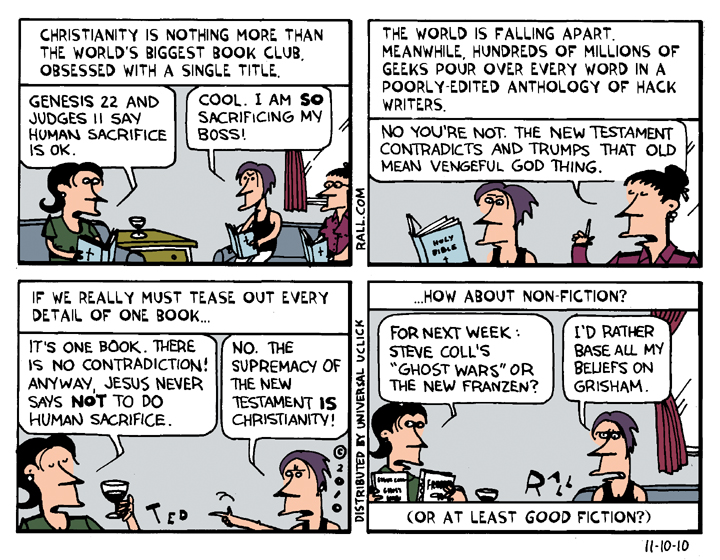
Like climate change, this is one of those problems I keep expecting people to wise up about but — because they never do — it keeps getting worse.
Thus this tutorial.
The problem is that too many Americans conflate the First Amendment with free speech.
You see it when people discuss the current social-media crackdown against controversial right-wing radio talk show host Alex Jones and his website InfoWars. Jones was banned by Facebook, YouTube (which is owned by Google), Apple and Spotify, and more recently suspended by Twitter for one week. Writing in The New Yorker Steve Coll mocked Jones for calling himself the victim of “a war on free speech.”
“Such censorship is not unconstitutional,” Coll reminds readers. “The First Amendment protects us against governmental intrusions; it does not (yet) protect speech on privately owned platforms.”
The U.S. government is rarely in a position to censor Americans’ freedom of expression. Because the vast majority of censorship is carried about by non-government entities (like the social media companies blocking Jones) the First Amendment only bans a tiny portion of censorship.
Some government agencies do censor the press. A federal judge ordered The New York Times to halt publication of the Pentagon Papers in 1971. The LAPD, whose pension fund owned part of the parent company of The Los Angeles Times and was angry about my work criticizing its brutality and incompetence, ordered the Times to fire me as its cartoonist. They complied. Annoyed by an editorial in the local paper criticizing them for conducting random searches of high school students at basketball games using dogs, the police in Baker City, Oregon created a fake dossier of crimes committed by the editorial writer, which they used to get him fired from his job.
These cases are covered by the First Amendment. But they are outliers.
We can’t protect existing rights if we don’t understand the current parameters of the law. New rights arise from unfulfilled political needs and desires; we can’t fight for expanded protections without defining what is lacking yet desired. Schoolchildren and student journalists, both public and private, are constantly running up against censorship by teachers and administrators. Employers constrain political speech, obscenity and other forms of expression on the job. These are free speech but not First Amendment issues.
In recent decades opponents of free speech, mostly but not exclusively on the right, have relentlessly conflated First Amendment debates with those over free speech. The effect has been to reduce society’s expectations of how much freedom we ought to have to express ourselves.
Take the Jones case.
Writing for the website Polygon, Julia Alexander provides us with a boilerplate (liberal) response to Jones and his allies’ complaints that the big social media companies are suppressing his free speech. First she described some of the episodes that prompted banning Jones, such as pushing PizzaGate and Sandy Hook shooting denialism. Then she pounces: “It’s not a freedom of speech issue, nor one of censorship,” Alexander writes. “The First Amendment…gives American citizens the freedom of speech…The United States government isn’t bringing the hammer down on Jones. This isn’t a political issue, as badly as Jones might want to pretend otherwise.”
See what Alexander did? In just a few sentences she squeezes and smooshes the extremely broad practice of “censorship” into the relatively tiny box of “the U.S. government…bringing the hammer down.” I don’t mean to pick on her — I’ve seen this same exact ball of sophistry used over and over by countless other pundits.
Of course Twitter, Facebook et al. are censoring Jones. Of course the First Amendment doesn’t cover him here. Obviously it’s a freedom of speech issue. The question — the question pro-censorship folks like Alexander doesn’t want us to ask — is, is it right?
For what is right is not always what is legal (see: slavery). Alex Jones and his allies may or not be legit. Their political arguments often are not. But the question they’re asking here is legit and important: should companies like YouTube have the power to suppress speech — any kind of speech?
Alexander ends with a message you ought to find chilling: “Don’t publish vile content, and your video will probably be a-ok.”
“Probably”?
Who gets to define “vile”? Alexander? Mark Zuckerberg, apparently.
Obviously it is a political issue. But that’s not the main point here.
Free speech used to belong to the man with the means to buy ink by the barrel. Now you can buy a newspaper for pennies on the dollar, but who will read it? Much if not most of the political debate in our civic life takes place on platforms owned, controlled and censored by the companies blocking Jones’ content. They write and enforce their own rules. As private companies they are unaccountable to we, the people. We don’t know how they make censorship decisions or who makes them.
Perhaps this is a splendid state of affairs. Maybe Americans don’t mind surrendering control of political debate to faceless tech giants.
Whatever we decide, however, we deserve a transparent discussion. We ought not to let ourselves be fooled into falsely equating free speech to the First Amendment. Free speech means exactly that: everyone and anyone can say anything at all, anywhere they please, to anyone.
Every First Amendment case is a free speech issue. But only a tiny fraction of free speech issues is a First Amendment case.
(Ted Rall (Twitter: @tedrall), the political cartoonist, columnist and graphic novelist, is the author of “Francis: The People’s Pope.” You can support Ted’s hard-hitting political cartoons and columns and see his work first by sponsoring his work on Patreon.)
Distributed by Creators Syndicate
(C) 2018 Ted Rall, All Rights Reserved.

